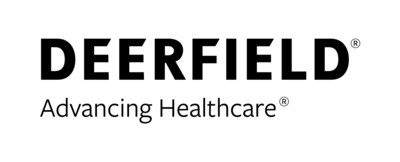Sfunga Therapeutics (“Sfunga”), a biotechnology company, and Deerfield Management Company (“Deerfield”), a healthcare investment firm, today announced the publication of data on a novel antifungal molecule AM2-19 in the scientific journal Nature.
|
|
| [08-November-2023] |
|
– SF001, with QIDP and FDA Fast Track designations, NEW YORK, Nov. 8, 2023 /PRNewswire/ -- Sfunga Therapeutics ("Sfunga"), a biotechnology company, and Deerfield Management Company ("Deerfield"), a healthcare investment firm, today announced the publication of data on a novel antifungal molecule AM2-19 in the scientific journal Nature.[1] AM2-19 is a derivative of amphotericin (AmB), rationally designed to mitigate toxicities and optimize antifungal activity. AM2-19, formulated as the development candidate, SF001, received Qualified Infectious Disease Product (QIDP) and Fast Track designations from the U.S. Food and Drug Administration (FDA) in 2023, and is in Phase 1 clinical development. Fungal infections cause more than 150 million severe, life-threatening infections that result in about 1.7 million deaths each year globally.[2] Invasive fungal infections (IFI) typically occur in people with compromised immune systems due to HIV/AIDS, cancer therapies and organ transplants. These infections also occur in people with severe lung disease, including that caused by influenza and SARS CoV-2. Despite this public threat, only four classes of antifungal medicines are available. Each class has known adverse effects with the potential to put patients' safety and outcomes at risk. AmB is a naturally occurring small molecule, used since the 1950s as a treatment for people with IFI. The drug has a broad spectrum of activity, but AmB causes kidney impairment in about 80 percent of patients, limiting its use.[3] "Patients with invasive fungal infections have few available antifungal treatment options that are effective and safe. Sfunga is working to improve patient outcomes by developing a therapy with all of the antifungal properties of AmB, but with much better safety and tolerability," said Kieren Marr, M.D., M.B.A., FIDSA, Sfunga co-founder and Chief Medical Officer and adjunct professor of medicine and business at Johns Hopkins University. "We are optimistic about the continued clinical development of SF001, the lead compound of the Sfunga pipeline already in Phase 1 clinical development." Sfunga was formed in 2019 as a collaborative venture between Martin Burke M.D., Ph.D., senior author of the Nature paper and professor of chemistry at the University of Illinois at Urbana-Champaign, and Deerfield. Clinical development was initiated in 2023, under Marr's direction. Sfunga has completed SF001's first in human single-ascending dose study and is poised to begin a multiple-ascending dose study in 2024. "The innovative development of SF001, published in Nature today, stems from leveraging highly valuable discoveries about the structure and function of AmB," said James Flynn, Managing Partner, Deerfield Management and Cure® Founder. "Our collaboration to create Sfunga furthers Deerfield's commitment to providing tailored funding, infrastructure, and support needed for successful commercial development of novel discoveries that advance health." With nearly three decades of experience in healthcare investment, Deerfield generally maintains a portfolio of more than 150 private and public investments across the life science, medical device, diagnostic, digital health and health service industries at all stages of evolution from start-up to mature company. SF001: Rationally designed for optimal safety and efficacy Additional high-resolution atomic-level analyses provided insights into the binding interactions between AmB and each sterol. The resulting information guided the investigators' development of AM2-19's structure and shape as a new molecule that could rapidly extract fungal ergosterol without harmful toxicity to human cells. In laboratory studies, AM2-19 bound to ergosterol but not cholesterol, demonstrating decreased toxicities, with potent efficacy against pathogenic yeasts and moulds in vitro and in animal studies. The research reported in Nature received support from Sfunga; the National Institutes of Health under grants 5R01-AI135812-04, R35-GM118185, R01-GM112845 and R01-GM123455, R01-AI063503 and P4-GM136463; and the Roy J. Carver Charitable Trust. Arun M, Soutar C, Zhang J, et al. Tuning sterol extraction kinetics yields a renal sparing polyene antifungal. Nature. 2023. doi: 10.1038/s41586-023-06710-4. Fungal Infections Threaten Global Public Health WHO reports that fungal diseases are expanding in their incidence and geographic range globally because of climate change, increased international travel and trade, and the impact of the COVID-19 pandemic, among other factors. Also, both yeasts and moulds are increasingly reported to develop resistance to available antifungals, limiting treatment options and contributing to poor outcomes. About Sfunga About Deerfield Management Sfunga contact: Deerfield contact: Endnotes [1] Arun M, Soutar C, Zhang J, et al. Tuning sterol extraction kinetics yields a renal sparing polyene antifungal. Nature. 2023. doi: 10.1038/s41586-023-06710-4.
SOURCE Deerfield Management Company, L.P. |





